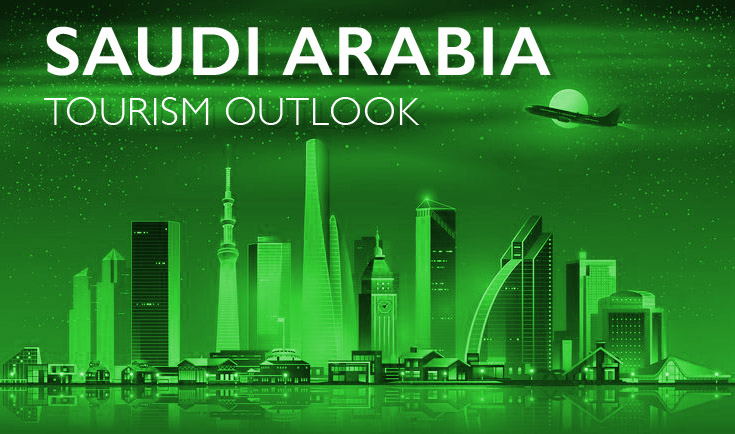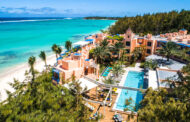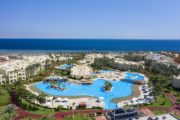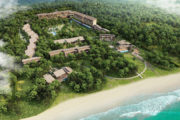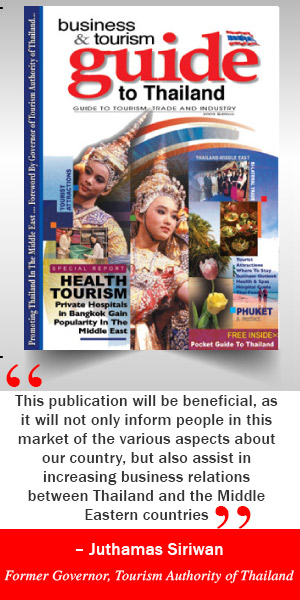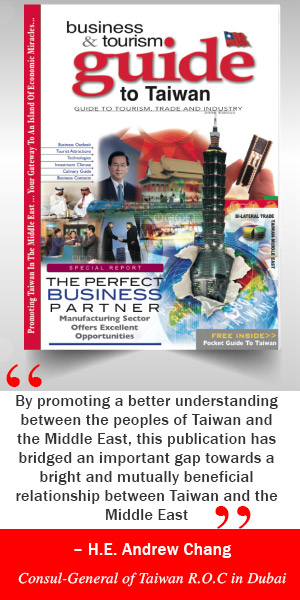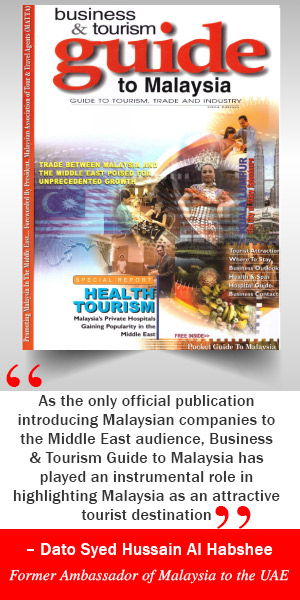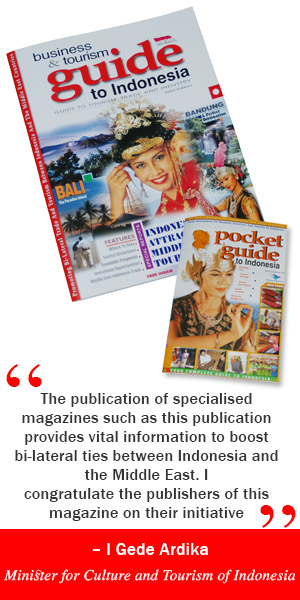As Saudi Arabia forges ahead with Vision 2030, with tourism earmarked as a key economic driver, tourism and travel leaders from the Kingdom convened at the ATM 2021 Saudi Arabia Tourism Summit on the Global Stage yesterday to discuss the strategy’s positive repercussions for the country, its people, investors and millions of global travellers.
Addressing a capacity crowd at the in-person ATM in Dubai, the region’s largest travel and tourism showcase, were Fahd Hamidaddin, CEO, Saudi Tourism Authority, Majed Alnefaie, Acting CEO of Seera, Captain Ibrahim Koshy, CEO, Saudi Arabian Airlines (SAUDIA), and Dr Afnan Al Shuaiby, Founder and CEO of FNN International and Chair of the Arab International Women’s Forum.
Saudi Arabia is preparing to reopen its borders for foreign tourists imminently, and it is well on its way to realising its ambition for attracting 100 million tourists per year by 2030.
Fahd Hamidaddin, CEO of Saudi Tourism Authority, discussed the Kingdom’s response to the coronavirus pandemic, having just opened up to international tourism in September 2019: “While the travel and tourism sector was paralysed globally, Saudi Arabia kept moving. Although the priority was to save lives, we were also committed to protecting livelihoods and saving jobs through our successful domestic tourism campaign, which resulted in a 33% increase in spending, hotel occupancy was at 50%, and the number of Destination Marketing Companies (DMCs) within the Kingdom increased from 17 to 93.”
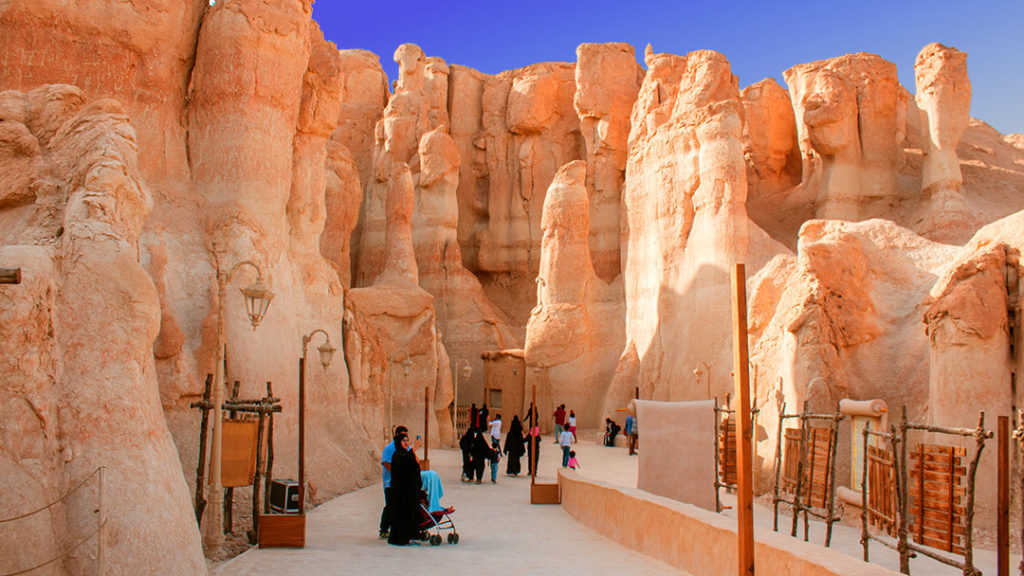
Saudi Arabia: Tourism Industry
Saudi Arabia registered more international arrivals than any other Arab nation during the first nine months of 2022, as government officials target 100 million annual visitors by the end of this decade. Owing to these unprecedented numbers, the Kingdom’s burgeoning tourism sector will represent a key focus at Arabian Travel Market (ATM) 2023, which will take place at Dubai World Trade Centre (DWTC) from 1-4 May.
This year’s Saudi Summit will take place on the Global Stage and focus on the importance of the Kingdom in reshaping the regional travel and tourism landscape now that mega projects are well under way. In addition to the summit, ATM 2023 will feature a host of Saudi exhibitors, including Saudi Arabian Airlines (SAUDIA), flynas, Makkah Clock Royal Tower, Asma Hospitality Company, Eye of Riyadh, Itrip, Dur Hospitality, Sadana Real Estate Co, Saudi Amad for Airport Services & Transport Support and many more.
Figures released by the United Nations World Tourism Organization (UNWTO) show that Saudi Arabia attracted more than 18 million inbound visits in the first three quarters of 2022, followed by the United Arab Emirates (14.8 million tourists) and Morocco (11 million tourists), which ranked second and third in the region, respectively.
Tourism spending in Saudi Arabia also skyrocketed last year, hitting $7.2 billion in H1 2022 according to figures released by the country’s Ministry of Investment. Travel experts from around the world will place these statistics under the microscope at ATM 2023, as part of a series of KSA-focused sessions and panel discussions.

Tourism Infrastructure
The UAE generated the highest value of cumulative hospitality-related contracts in the GCC last year, followed by Saudi Arabia. The combined value of UAE and KSA projects accounted for more than 90 percent of all hospitality contracts awarded in the region during 2021, according to the research.
On a regional level, data released by STR shows that more than 169,000 pipeline rooms are currently under contract across the Middle East, the three most active cities being Dubai, Makkah and Doha, respectively.
Despite the pandemic headwinds that the global hospitality industry has had to contend with over the past two years, new hotel development in prime tourism destinations in Saudi Arabia, Qatar, Oman and the UAE, remains substantial even by global standards.
According to recent reports, there are almost 2.5 million hotel rooms currently under contract around the world, 3.2% or 80,000 rooms of that supply is taking place in Saudi Arabia alone.
Analysts from Colliers International note that although the GCC’s transactional market has been less active than its counterparts historically, recent sales such as the Address Portfolio ($500 million in 2019) and Aldar Properties’ acquisition of Rixos Bab Al Bahr ($205 million in 2022) are indicative of future growth. Their research predicts that the GCC transactional market will continue to mature as regional tourism markets reach a stabilised development phase.

Colliers International also points out that while the UAE market accounts for the lion’s share of regional hospitality investment at present, contract values in Saudi Arabia, which has announced numerous giga projects and masterplan developments during recent years, will attract significant investment over the longer term.
“We have witnessed an impressive hospitality pipeline amass across Saudi Arabia, with 33,560 rooms slated for Makkah and 19,500 spread throughout its other cities and coastal areas,” said Curtis. “Giga projects like NEOM, the Red Sea Development and Rua Al Madinah are gathering pace, with investors and hotel operators competing for opportunity and market share.”
The Middle East is increasingly being used as a springboard to raise capital for tourism projects as it offers appropriate financial instruments as well as agile financing modalities. A range of funds are available to support private initiatives through investment loans or share owning in projects.
The Saudi Arabia Tourism Summit also explored the “giga-project effect”, from developments that preserve and promote the Kingdom’s heritage, culture and natural assets to theme parks, futuristic cities in the desert and luxury resorts with a strong focus on sustainability.
Join our social community on Facebook, Instagram, YouTube and TripAdvisor √√



